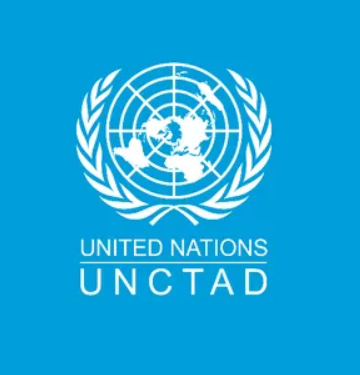United Nations Conference on Trade and Development
The United Nations Conference on Trade and Development (UNCTAD) is a principal organ of the United Nations General Assembly, established in 1964 to promote international trade and economic development, particularly in developing countries. UNCTAD is headquartered in Geneva, Switzerland, and has a membership of 195 countries.
The organization serves as a forum for trade negotiations, conducts research and policy analysis, and provides technical assistance to developing countries to help them integrate into the global economy. UNCTAD’s work is guided by its mandate to promote the development-friendly integration of developing countries into the world economy.
History
- UNCTAD was established in 1964 in response to growing concerns about the place of developing countries in international trade. The first UNCTAD conference took place in Geneva in 1964, and subsequent conferences have been held every four years.
- During the 1960s and 1970s, UNCTAD played a key role in the establishment of the Generalized System of Preferences (GSP), which aimed to promote exports from developing countries by granting them preferential tariffs.
- In the 1980s and 1990s, UNCTAD’s work focused on the debt crisis in developing countries and the challenges posed by globalization. In recent years, the organization has placed greater emphasis on sustainable development and the need to ensure that the benefits of globalization are shared more equitably.
Structure
UNCTAD is governed by its 195 member states, which meet every four years at the UNCTAD Conference. The Conference sets the organization’s mandate and work priorities.
The UNCTAD Secretariat, headed by the Secretary-General, is responsible for the day-to-day work of the organization. The current Secretary-General is Rebeca Grynspan of Costa Rica, who assumed the position in September 2021.
UNCTAD’s work is organized into three main areas:
- Globalization and Development Strategies
- Investment and Enterprise
- International Trade and Commodities
Key Initiatives
Some of UNCTAD’s key initiatives include:
- The Least Developed Countries Report, an annual publication that analyses the socio-economic challenges facing the world’s poorest countries.
- The World Investment Report, which provides analysis of global trends in foreign direct investment.
- The Trade and Development Report, which examines global economic trends and their impact on developing countries.
- The eTrade for All initiative, which aims to support developing countries in harnessing the benefits of e-commerce.
- The BioTrade initiative, which promotes trade in goods and services derived from biodiversity.
Impact
UNCTAD has played a significant role in shaping the global trade and development agenda. The organization’s research and analysis have contributed to a better understanding of the challenges facing developing countries in the global economy.
Through its technical assistance programmes, UNCTAD has helped developing countries to build their capacity to participate in international trade and attract foreign investment. The organization has also been a strong advocate for the interests of developing countries in multilateral trade negotiations.
However, UNCTAD has also faced criticism, with some arguing that the organization has not been effective in promoting the interests of developing countries in an increasingly complex global economy. There have also been calls for UNCTAD to reform its working methods and adapt to the changing realities of the 21st century.


